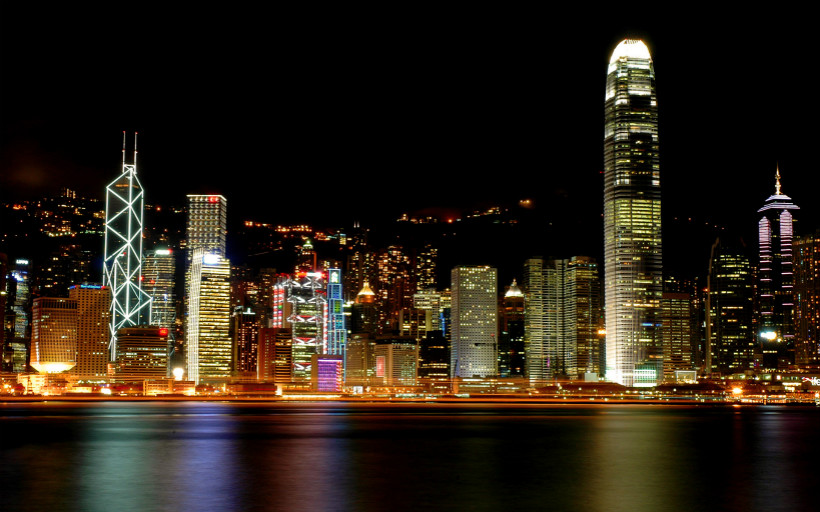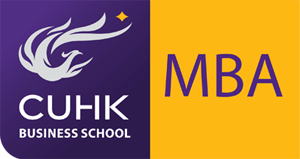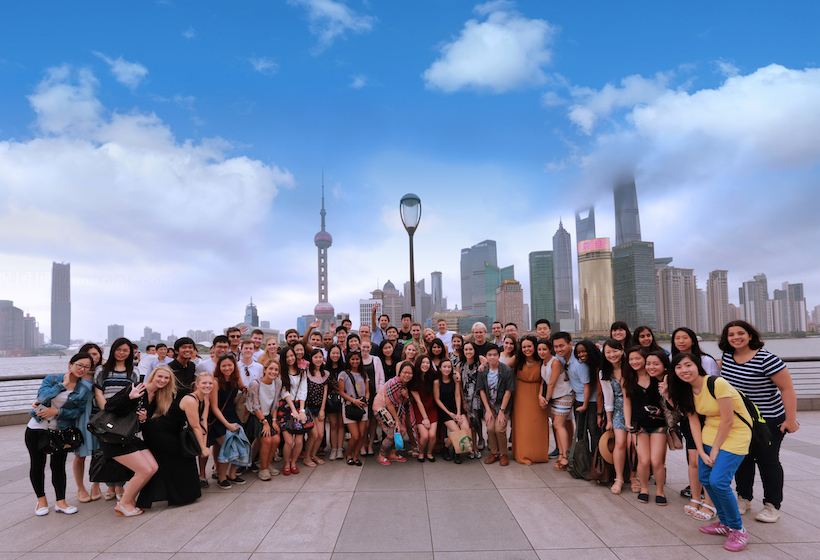Why an MBA in the City of Hong Kong?
1. A Brief Introduction to Hong Kong
Hong Kong is an autonomous territory on the southern coast of China, which was a British Colony for more than 130 years. It became a special administrative region of People’s Republic of China in 1997 with a high degree of autonomy under the principle of One Country, Two Systems(一国两制). It has 1,104 km2 of land with about 7.2 million inhabitants of various nationalities, and thus makes it into one of the most densely populated cities and one with the most high-rises in the world.
With its deep connection to the west, especially to the United Kingdom, Hong Kong is the place where East meets the West. It is a very welcoming city with high diversity: the percentage of foreign-passport holders in Hong Kong is very high compared to the rest part of Asia. You can enjoy its proximity to Mainland China and limitless opportunities while knowing little about how to speak Chinese or use chopsticks.
2. Hong Kong’s Economic and Financial Status in the World
As one of the Four Asian Tigers, Hong Kong is one of the world's leading international financial centers, famous for its low taxation, open port trade and well established international financial market. Despite the strong governmental control over the socialist economy in Mainland China, Hong Kong remains a perfect example of Laissez-fair Capitalism. According to the Index of Economic Freedom, Hong Kong has been ranked as the world's freest economy for 20 consecutive years. Mainland China, USA, UK, Japan, and EU are all among its main export and import partners. The Hong Kong Stock Exchange is a favorable destination for international firms and its size, regulations and available financial tools are comparable to the sophistication of London and New York.
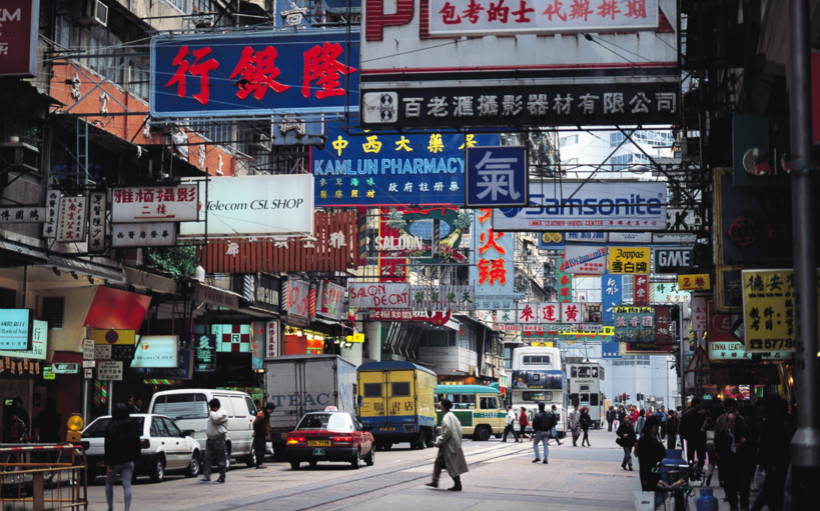
Additionally, Hong Kong is usually the gateway to Mainland China, which has about 1.37 billion population, a vast landscape, and endless growth opportunities. Hong Kong is currently handling one-fifth of the Mainland China’s foreign trade and the largest offshore pool of Renminbi (RMB, Chinese currency) liquidity. Also, Hong Kong channels around two-thirds of foreign investment in Mainland China and over half of its overseas investments, exposing MBA students to innumerable employment and business opportunities.
3. The Political Importance of Hong Kong
Hong Kong's legal system is completely independent from the legal system of Mainland China. It follows the English common law, while the Quasi-constitution, the Hong Kong Basic Law, empowers it to develop relations and make agreements directly with foreign countries as well as international organizations. Hong Kong is an independent member of APEC, the IMF, and WTO.
Because of Hong Kong’s special political position, its partners usually have special policies with regard to their political, economic and cultural relations with Hong Kong, like the United States ? Hong Kong Policy Act. Some countries even have Consulates-Generals operating independently of their Embassies in Beijing, giving the policies and agreements in Hong Kong a high degree of freedom, which is very important for the economy in Hong Kong.
4. Prestigious MBA Schools based in Hong Kong
With its rapid development and special status, Hong Kong holds an important position in business, economy and finance in Asia and the world. In regards to business education, Hong Kong is a pioneer in Asia. Starting in the 1960s, many universities in Hong Kong, including HKUST and CUHK, started MBA programs. They are among the longest established programs in Asia. Many famous western universities are in collaboration with universities in Hong Kong or have established learning centers. For example, Northwestern University Kellogg School of Management works with HKUST, and LBS and NYU Stern works with HKU to provide EMBA programs. Because since Hong Kong has a strong connection with the Great Britain, many universities of the Commonwealth also have programs based in Hong Kong, such as Macquarie Graduate School of Management (MGSM) of Australia.
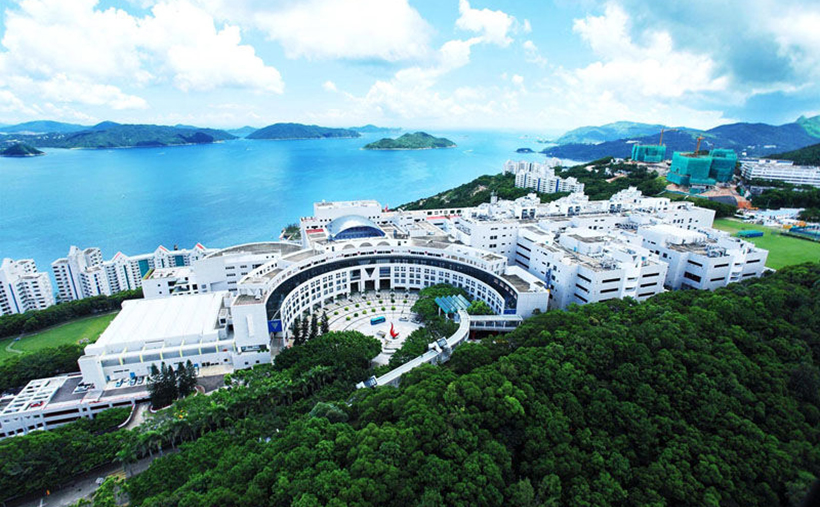
a) Hong Kong University of Science and Technology (HKUST) Business School (MBA ranking #14 in the world according to FT, the best in China; average salary: $144,303; salary increase: 114%.)
Established just two decades ago in 1991, the HKUST Business School is one of the leading business schools in Asia, offering a full suite of degree programs, including undergraduate, MBA, EMBA, MSc, PhD as well as a wide range of executive education programs. It was first the school in Hong Kong to be accredited by both AACSB and EQUIS. Its unique Asian and global perspectives are made possible by its 140-strong international faculty with diverse cultural and ethics backgrounds. The school is also famous for the Kellogg-HKUST Executive MBA program, a world-class program that brings together senior executives across the globe on a new level.
b) The Chinese University of Hong Kong (CUHK) Business School (MBA ranking #27 in the world according to FT; average salary: $124,268; salary increase: 120%.)
The CUHK Business School, one of the leading business schools and a pioneer in business education in Hong Kong, has five remarkable features that attract business leaders from around the globe: its rich history of MBA Programs, its strong regional and global connections, its diverse class profile, its powerful career support, and its pioneering entrepreneurship track. The school ranked 4th in Asia in terms of career progress and CUHK MBA is one of the first two business schools in Asia accredited by AACSB. Through its unique learning environment, the school helps tomorrow's enlightened, global business leaders to get Chinese perspectives and global practices and provide them with a gateway to Mainland China.
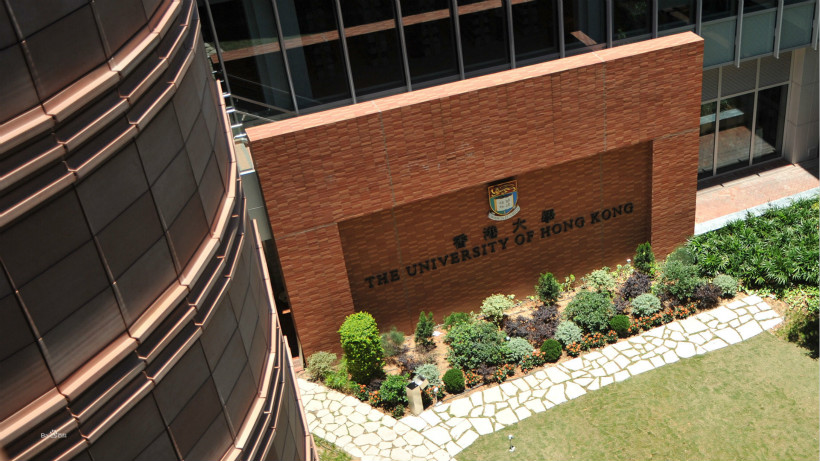
c) Hong Kong University (HKU) School of Business (MBA ranking #34 in the world according to FT; average salary: $112,518; salary increase: 106%.)
Hong Kong University is one of the best-known universities in China, with vast resources in many fields. Its MBA program, ranking #34 in the world, is also one of the best in China, It offers post-graduates enhancement in knowledge and competitiveness in the globalized economy. The full-time MBA program is an intensive 14-month program with three tracks, which students will spend four months in London, New York, or Hong Kong / Shanghai. The school also offers part-time MBA program, EMBA program, and master degree in many concentrations.
d) City University of Hong Kong (#1 University for business & econ in Hong Kong according to US News 2016; 57th in the 2015 World University Rankings by QS.)
Conveniently located in Kowloon, a stone's throw from the city center, “CityU” MBA students have the opportunity to gain global learning experience through the Global Brand Management Workshop at Imperial College in London, the Entrepreneurship Workshop at UC Berkeley in Silicon Valley, and the MBA Enterprise Diagnostic Residential Trip in China. School’s slogan “We are SHARP” implicates its strategic commitment: the school is committed to fostering a business education environment with world class Software, state-of-the-art Hardware, and well connected Alumni so as to boost global talents Recruitment and power them to achieve a career advancing Placement.
e) List of other Great Programs in HK
There are many other great programs in HK and here is a partial list. Click the name of the program if you are interested.
City University of Hong Kong MBA Program
The Hong Kong Polytechnic University MBA Program
Hong Kong Baptist University MBA Program
The University of Manchester - Manchester Business School MBA Program (East Asia Center located in Hong Kong)
University of Reading Henley Business School EMBA in Hong Kong
Macquarie Graduate School of Management MBA Program
The Hull EMBA Program in Hong Kong
5. A Great City to Live In
The cultural mix in Hong Kong makes it a perfect place for foreign MBA students, especially those who have never been to an Asian city. You can live comfortably in Hong Kong without knowing any Chinese and still get to try the delicious cuisines. Even if you are not a big fan of Chinese food, tons of restaurants and grocery stores with food from around the globe will make you feel at home.
Hong Kong, in many ways, resembles major cities in the west. You can find your favorite brand of chain stores easily. There is no need for a car since the subway and buses are pretty convenient. And you won’t get bored in the city at all. You can spend you Friday nights with other foreign students in bars at Lan Kwai Fong, or you can visit Sha Tin District for a horse racing game during the weekends, one of the many interesting traditions of Hong Kong.
Besides all the cosmopolitan features of this amazing city, there is one more big advantage: its proximity to Mainland China. You can get to Shenzhen, one of the most developed cities in south Mainland China within 30 minutes. A company visit or job interview won’t make you late to early classes. Travelling to Mainland China during vacations will be a great way to experience Chinese culture and prepare for a future career in China.
Even though Hong Kong’s economy suffered a downturn due to the economic crisis in 2008 there is no doubt that with its unique law system, culture, and location, Hong Kong is still an important city and the “ Pearl of the Orient”. It is the perfect place for someone who wants to learn more about Asia, especially China, but doesn’t want to be bounded by the relatively strict Chinese law and political system. Since Hong Kong is where east meets the west, an MBA degree in Hong Kong is well recognized by western universities and will turn you into an qualified individual desperately needed by transnational corporations.

What does it take for an MBA experience in Hong Kong?
1. The Application Process
It is always the best to check the various school websites, since different schools have slightly different requirements. Here is some information from HKUST Business School, just to give you a sense of what the process may be.
You need to have:
Online application form, including essays
2 online reference forms (Recommendation letter)
Strong academic transcripts
GMAT score report
TOEFL/ISLTS score of the last 12 months
A minimum two years of full-time work experience after the first degree
An interview will be conducted after reviewing the materials
There are usually a few rounds running through November to March. However it is recommended to apply early, since you will need time for visa.
2. Financial and Living Issues
a) Tuition, scholarships and Application Fees
Tuition also vary among schools. So it’s better to check the websites of individual schools you are interested in. For the Full-time MBA Program at HKUST Business School, the tuition is $69,900 USD (for the whole time period?). According to HKUST, you will need around $8,500 USD for housing and $10,800 USD for living costs. Adding books, supplies and field trip costs, the estimated total expense is $96,200 USD for the whole program.
Scholarships are available at most schools, including merit based ones.
There is usually a non-refundable application fee, which also varies among schools. For HKUST, it is $200 USD.
b) Other
There is a lot more to prepare, including visa, health certificate and insurance. But don’t panic. Most schools will help you through the process. Some schools even provide free Chinese (Mandarin or Cantonese) lessons to help you accommodate a life in Hong Kong.
What happens after graduation?

For these amazing MBA programs in Hong Kong, you get more than just knowledge and skills that help you with your business and career. There is a lot more to come after graduation.
The alumni network is a very important part of the holistic MBA experience. It is a platform to exchange resources, start long-standing friendships and get opportunities. Most Hong Kong business schools have large alumni communities worldwide and hold events often, which can be very useful when looking for jobs and networking with others.
Finding a job after graduation is also important. The career development office in most business schools in Hong Kong help with job placement. They offer services including self-assessments, career counseling and recruitment talks. The placement statistics from HKUST, CUHK and HKU are remarkable: the overall employment rates (within three months after graduation) of these three schools are 96%, 99%, and 86%, respectively. With a MBA degree from a Hong Kong business schools, people are likely to get an offer from companies in Hong Kong or Mainland China.



